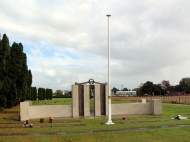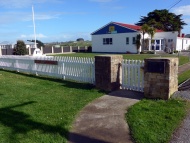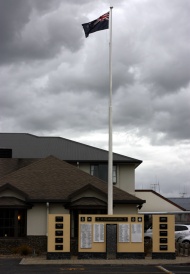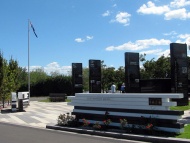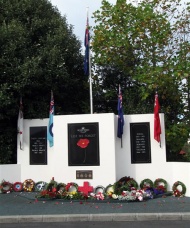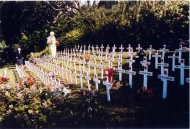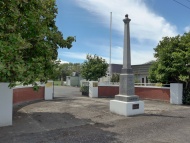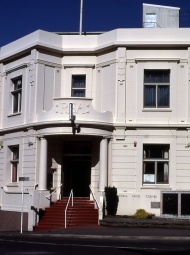Events In History
-
 24 April 1922New Zealand's first poppy day
24 April 1922New Zealand's first poppy dayA total of 245,059 small poppies and 15,157 larger versions were sold, earning £13,166. Of that amount, £3695 was sent to help war-ravaged areas of northern France; the remainder went to unemployed returned soldiers and their families. Read more...
Articles
Anzac Day
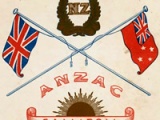
First observed in 1916, Anzac Day - 25 April - commemorates those killed in war and honours returned servicemen and women. The ceremonies held at war memorials around the country, and in places overseas where New Zealanders gather, are rich in tradition and ritual.
-
Page 4 – The making of Anzac Day
Anzac Day was made a half-day holiday in 1916, when the pattern of the day's events began to be set.
-
Page 5 – A sacred holiday
Anzac Day became a public holiday and took on new meaning in peacetime. It became a time to express sorrow, not glorify war, on a sacred day that had a secular tone.
-
Page 6 – Another war and peace
Anzac Day came to have a wider focus and the commemorations became more popular in the years after the Second World War.
-
Page 9 – The red poppy
The red poppy has become a symbol of war remembrance the world over. In many countries it is worn on Armistice Day (11 November), but in New Zealand it is most commonly seen on
Anzac Day in the Pacific
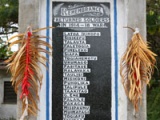
Armistice Day was the initial focal point for commemorations in the Cook Islands and Niue after the First World War. But because men from both countries had served in the New Zealand Expeditionary Force, observances gradually shifted to Anzac Day in April
-
Page 2 – Early commemorative efforts
During the 1920s war memorials provided a focus for commemoration services in the Cook Islands, where the first Anzac Day service was possibly held in 1927. On Niue, Armistice
-
Page 3 – The growth of Anzac Day
By the end of the Second World War military commemorations in the Cook Islands and Niue centered around Anzac Day. Services in both countries followed the pattern of those in
Royal Visit of 1953-54

For those New Zealanders who experienced it, the visit of the young Queen and her dashing husband, Prince Philip, to New Zealand in the summer of 1953-54 was a never-to-be forgotten event.
- Page 6 - A loyal peopleAs head of the Church of England the Queen laid the foundation stone of the new Anglican cathedral in Wellington, and as head of the Commonwealth's armed forces she laid a wreath
Related keywords
-
Main image: Whakatāne Hospital roll
The First World War Roll of Honour at the Whakatāne Hospital.


